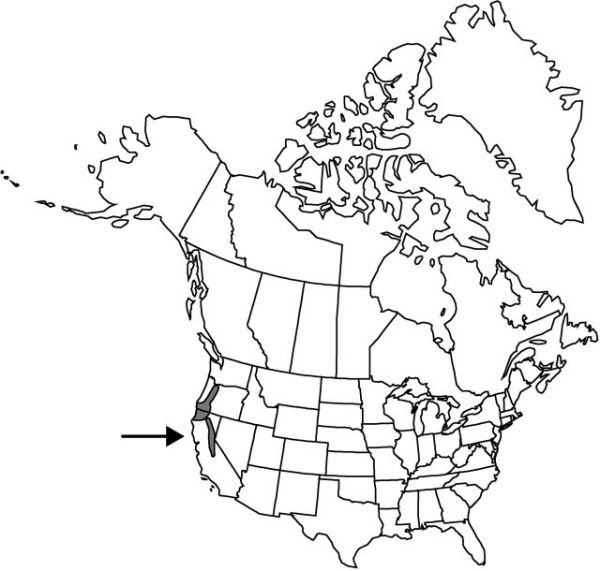Difference between revisions of "Lilium washingtonianum"
Hesperian (San Francisco) 3: 340. 1859.
FNA>Volume Importer |
imported>Volume Importer |
||
| (2 intermediate revisions by 2 users not shown) | |||
| Line 8: | Line 8: | ||
}} | }} | ||
|common_names=Washington lily | |common_names=Washington lily | ||
| + | |special_status={{Treatment/ID/Special_status | ||
| + | |code=F | ||
| + | |label=Illustrated | ||
| + | }}{{Treatment/ID/Special_status | ||
| + | |code=E | ||
| + | |label=Endemic | ||
| + | }} | ||
|basionyms= | |basionyms= | ||
|synonyms= | |synonyms= | ||
| Line 54: | Line 61: | ||
|publication title=Hesperian (San Francisco) | |publication title=Hesperian (San Francisco) | ||
|publication year=1859 | |publication year=1859 | ||
| − | |special status= | + | |special status=Illustrated;Endemic |
| − | |source xml=https:// | + | |source xml=https://bitbucket.org/aafc-mbb/fna-data-curation/src/2e0870ddd59836b60bcf96646a41e87ea5a5943a/coarse_grained_fna_xml/V26/V26_308.xml |
|genus=Lilium | |genus=Lilium | ||
|species=Lilium washingtonianum | |species=Lilium washingtonianum | ||
Latest revision as of 21:14, 5 November 2020
Bulbs subrhizomatous to ± ovoid, 2.7–10 × 4.4–13.4 cm, 0.2–0.9(–1.4) times taller than long; scales unsegmented or notched with 2(–3) poorly defined segments, sometimes 2-segmented, longest 3.3–11.9 cm; stem roots absent. Stems to 2 m, often glaucous. Buds rounded in cross section. Leaves in 1–8 whorls or partial whorls, 3–16 leaves per whorl, horizontal and drooping at tips to ascending, occasionally nearly clasping stem, 3.7–12.3 × 0.9–4.7 cm, 2–6.5 times longer than wide; blade oblanceolate, sometimes obovate, rarely elliptic, margins undulate or not, apex acute, often widely so; veins and margins ± smooth abaxially. Inflorescences racemose, 1–33-flowered. Flowers opening before dusk, ± horizontal, slightly bilaterally symmetric, strongly fragrant; perianth ± funnelform; sepals and petals recurved 2/3–3/4 along length from base and scarcely overlapping to form tube, lower usually less recurved than upper and forming landing platform, white, often aging deep pink or lavender, often with short yellowish stripe extending from basal median nectaries, often with fine magenta spots concentrated basally, not distinctly clawed; sepals sometimes purplish abaxially, not ridged abaxially, (6.1–)6.7–11.3 × 0.9–1.7 cm; petals noticeably wider than sepals, oblanceolate and often very wide distally, (6.1–)6.6–11.2 × 1.1–2.4 cm, apex widely acute, obtuse, or rounded; stamens barely exserted; filaments barely spreading, diverging 2°–8° from axis; anthers off white or cream, becoming pale pink or yellow, 0.8–1.5 cm; pollen yellow or cream; pistil 7.5–10.4 cm; ovary 1.7–3.4 cm; style pale green; pedicel 4.8–15 cm. Capsules often with 6 longitudinal ridges, 2.7–5.8 × 1.6–2.9 cm, 1.3–2.3 times longer than wide. Seeds 123–231.
Distribution

Calif., Oreg.
Discussion
Subspecies 2 (2 in the flora).
Selected References
None.
Lower Taxa
Key
| 1 | Sepals and petals aging light pink or remaining white; bulbs sometimes (36%) without notched or segmented scales; sepals 8–11.3 cm; Sierra Nevada and s Cascades of California. | Lilium washingtonianum subsp. washingtonianum |
| 1 | Sepals and petals aging deep pink or lavender; bulbs usually (88%) with some notched or segmented scales; sepals (6.1–)6.7–9.5 cm; mountains of n California and Oregon. | Lilium washingtonianum subsp. purpurascens |